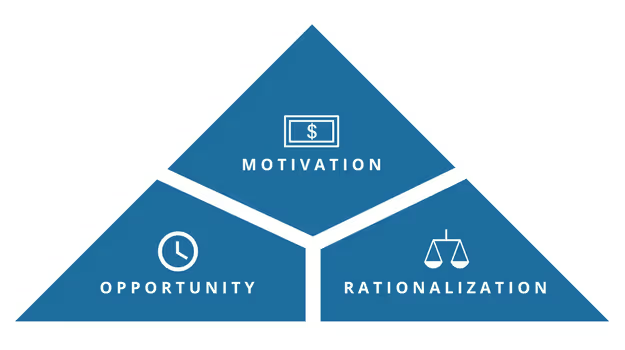3 Things I Learned From Researching Fraud for a Year
3 Things I Learned From Researching Fraud for a Year
I've gone from zero knowledge to pretty well-versed. Here are my favorite insights.
When I first started working at Case IQ, I knew next to nothing about fraud. I knew that it meant taking money that didn't belong to you, usually through some sneaky means, but that was pretty much the extent of my knowledge. I didn't know about the different types of fraud schemes. I definitely didn't know anything about fraud investigations. Over the past year and a half, I've researched everything from healthcare fraud to identity theft. Here are three of the most interesting bits of information I've learned.
Are your fraud investigations disorganized?
Case management software helps you track and manage fraud investigations in one centralized database. This powerful tool also lets you analyze trends and hot spots for better fraud prevention. Download our free eBook to learn more. Get the eBook
1. Training Employees is the Best Internal Fraud Prevention
Just like I was at the start of this job, most employees don't know a lot about fraud schemes. Unless their job is related to finance in some way or they like to read about financial crime, they probably couldn't tell you what internal fraud looks like. But who better to notice the subtle red flags of fraud than an employee working "on the ground" with the fraudster? Managers might be too busy to spot warning signs and the fraudster might know how to work around your internal controls. Their coworkers, though, will easily notice changes in behavior (such as long hours and protectiveness of work) or documentation inconsistencies. They might also not know that their own behavior is considered fraud. Training employees on the different types of workplace fraud and how to report them gives you extra sets of eyes and ears, helping you catch fraud earlier and prevent schemes from happening. RELATED: Detecting and Preventing Employee Theft: The Ultimate Guide
2. Phishing is Still a Huge Cybersecurity Threat
Phishing sounds like something stuck in the 90s. A cybercriminal sends you an email and convinces you to send your personal info to them, or to click a malicious link that installs spyware on your device. As with all types of fraud, though, phishing has become more complex. Cybercriminals still use the same basic tactics, but they've become more sophisticated. Now, the nasty link might send you to a carbon copy of your bank's or phone company's website, prompting you to log in so they can steal your credentials. Or, they might call you using deepfake audio of your CEO's voice asking you to send them money or sensitive information. Once I learned how real phishing schemes can appear, I started taking cybersecurity more seriously at work and at home. It's not just something old people fall for!
3. Opportunity Seems to Be the Most Important Side of the Fraud Triangle
Experts say that in order for someone to commit fraud, three things need to exist: opportunity, motivation and rationalization.

But from my research, it seems like the "opportunity" part of the triangle should be bigger than the other two. Fraudsters find ways to capitalize on every new technology, trend and change in the world. For instance, as soon as COVID-19 started spreading, fraudsters found ways to take advantage of peoples' fears. Schemes range from selling fake or subpar personal protective equipment to sending phishing emails with false COVID-19 protocol information from the person's employer. Another scheme that shocked me is customer review fraud. Retailers, especially on large sites like Amazon, need good reviews (and lots of them) to appear high in a customer's search. To capitalize on the surge in online shopping these days, some dishonest sellers pay or incentivize consumers for good reviews that push their products to the top. Nothing is sacred to a fraudster. They will always seize new opportunities to scam people out of money. RELATED: Fraud Trends for 2020: Watch Out for These Emerging Risks I'm still far from an expert on fraud schemes and investigations. With every new research project, though, I make new connections and insights that deepen my understanding of how fraud works.










